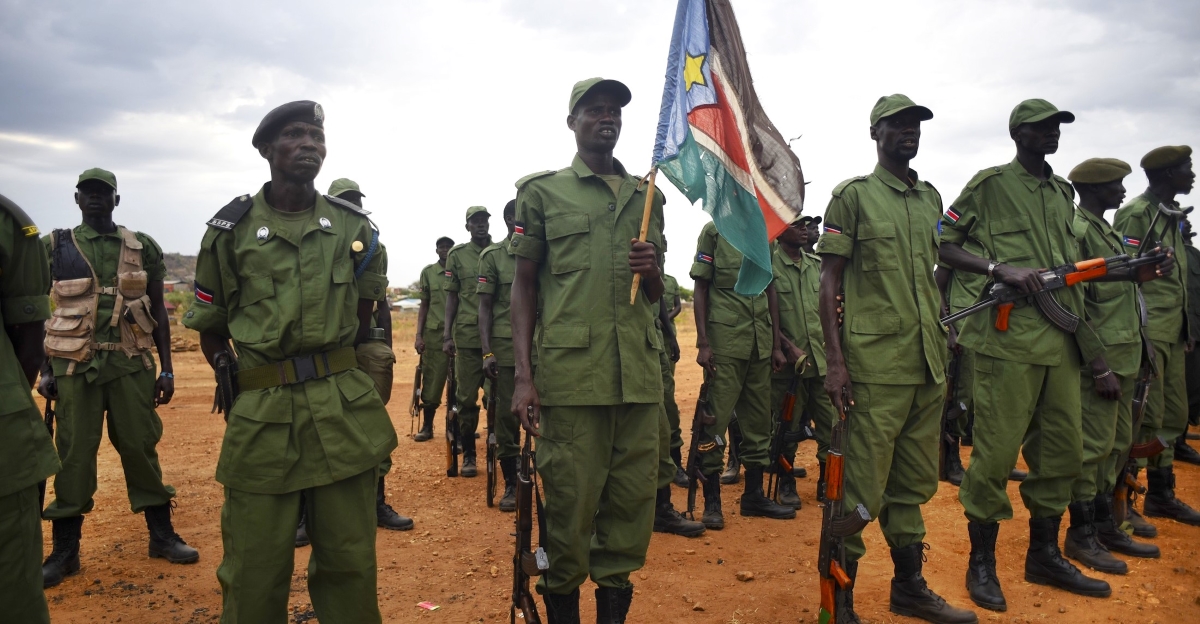The United Nations Security Council has voted to extend the arms embargo on South Sudan for another year, until May 31, 2026.
The UN is reinforcing sanctions that include asset freezes and travel bans on targeted individuals.
The decision, made on May 27, 2025, aims to curb the flow of weapons fueling violence in the world’s youngest nation, where recent clashes threaten to reignite a full-scale civil war.
Despite opposition from some quarters, the renewal underscores global concerns over South Sudan’s fragile security and ongoing human rights abuses.
The Security Council’s resolution, an extension of measures first imposed in 2018, maintains a strict ban on arms transfers to South Sudan, alongside targeted sanctions on key figures linked to the conflict.
The vote, narrowly approved last year, includes stronger enforcement language and enhanced monitoring mechanisms to address violations.
The embargo seeks to limit the proliferation of weapons in a country where armed groups continue to perpetrate violence, displacing millions and exacerbating a humanitarian crisis. The resolution also extends the mandate of the UN Panel of Experts to oversee compliance.
South Sudan faces mounting instability, with recent fighting and accusations of external interference, including claims by First Vice President Riek Machar that Uganda violated the embargo with military incursions.
The country’s dire conditions—marked by widespread crime, kidnapping, and human rights violations—have heightened fears that lifting the embargo could worsen the conflict.
The UN’s decision reflects a consensus that restricting arms flows is critical to protecting civilians and stabilizing the region, despite arguments from some that it limits the government’s ability to counter threats.
The renewal has sparked varied responses.
Advocates, including human rights groups, praise the move as essential to preventing further bloodshed, arguing that unrestricted arms access would intensify violence.
Others, including some South Sudanese officials, contend that the embargo hampers legitimate defense efforts against rebel groups.
The debate mirrors broader regional tensions, with African nations increasingly wary of external interventions that dictate local security policies.
The extended embargo will likely strain South Sudan’s military capabilities, particularly as it faces internal and external pressures. With a projected budget deficit and rising defense costs, the government’s ability to address security challenges is constrained.
The sanctions also signal continued international scrutiny of South Sudan’s leadership, urging reforms to address governance and human rights issues. As the nation navigates this critical juncture, the embargo’s enforcement will be pivotal in shaping its path toward peace or further conflict.
The UN Security Council’s renewal of the arms embargo on South Sudan until May 31, 2026, underscores the international community’s commitment to curbing violence in a nation teetering on the brink of renewed civil war.
While the decision aims to protect civilians and limit arms proliferation, it faces criticism for restricting the government’s defensive capacity.
As South Sudan grapples with its complex challenges, the embargo’s impact will be closely watched, with the hope of fostering stability in a region long plagued by conflict.
The Tanzania Times News Network will continue to monitor the situation in South Sudan and the effects of the UN sanctions, providing updates as developments unfold.

